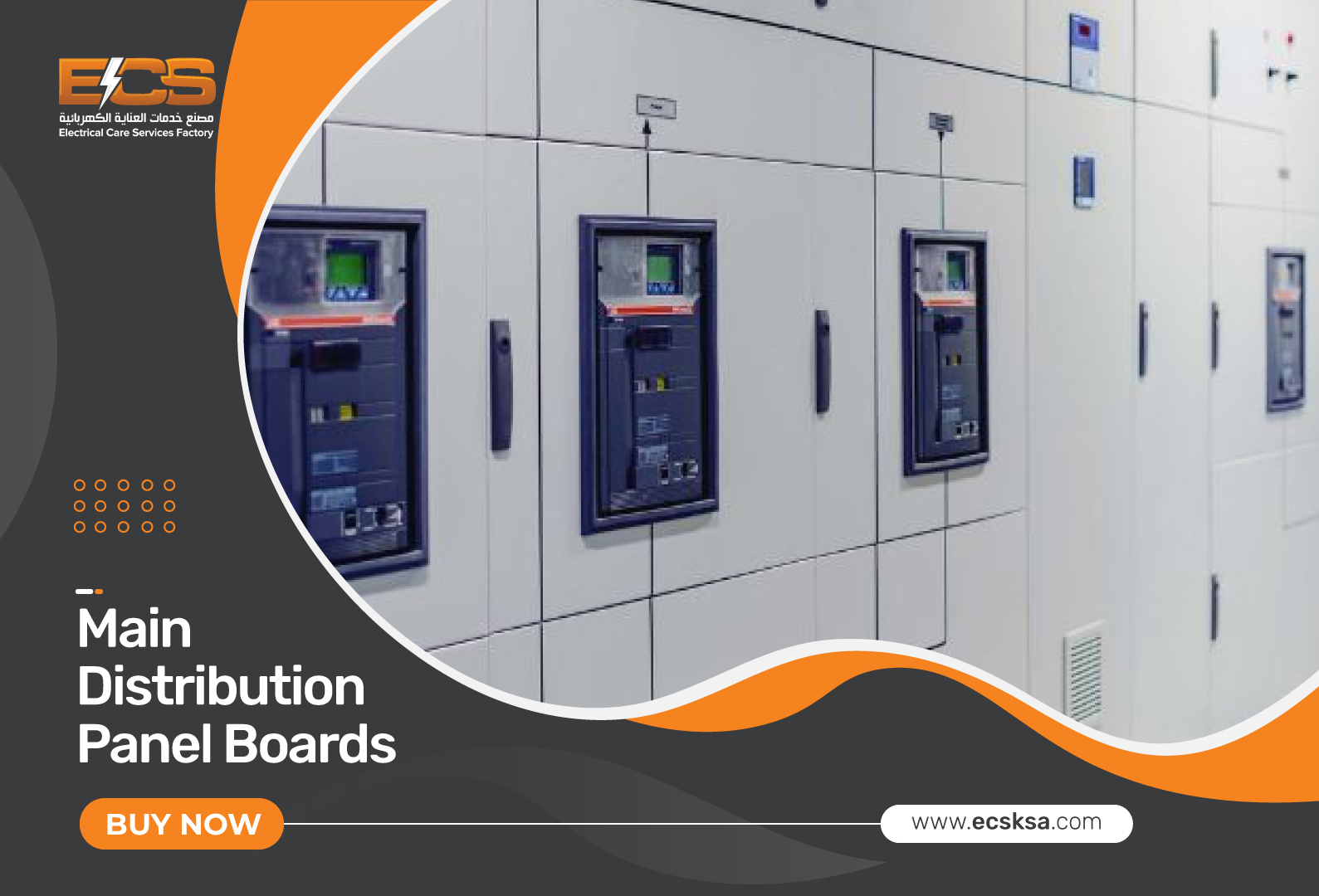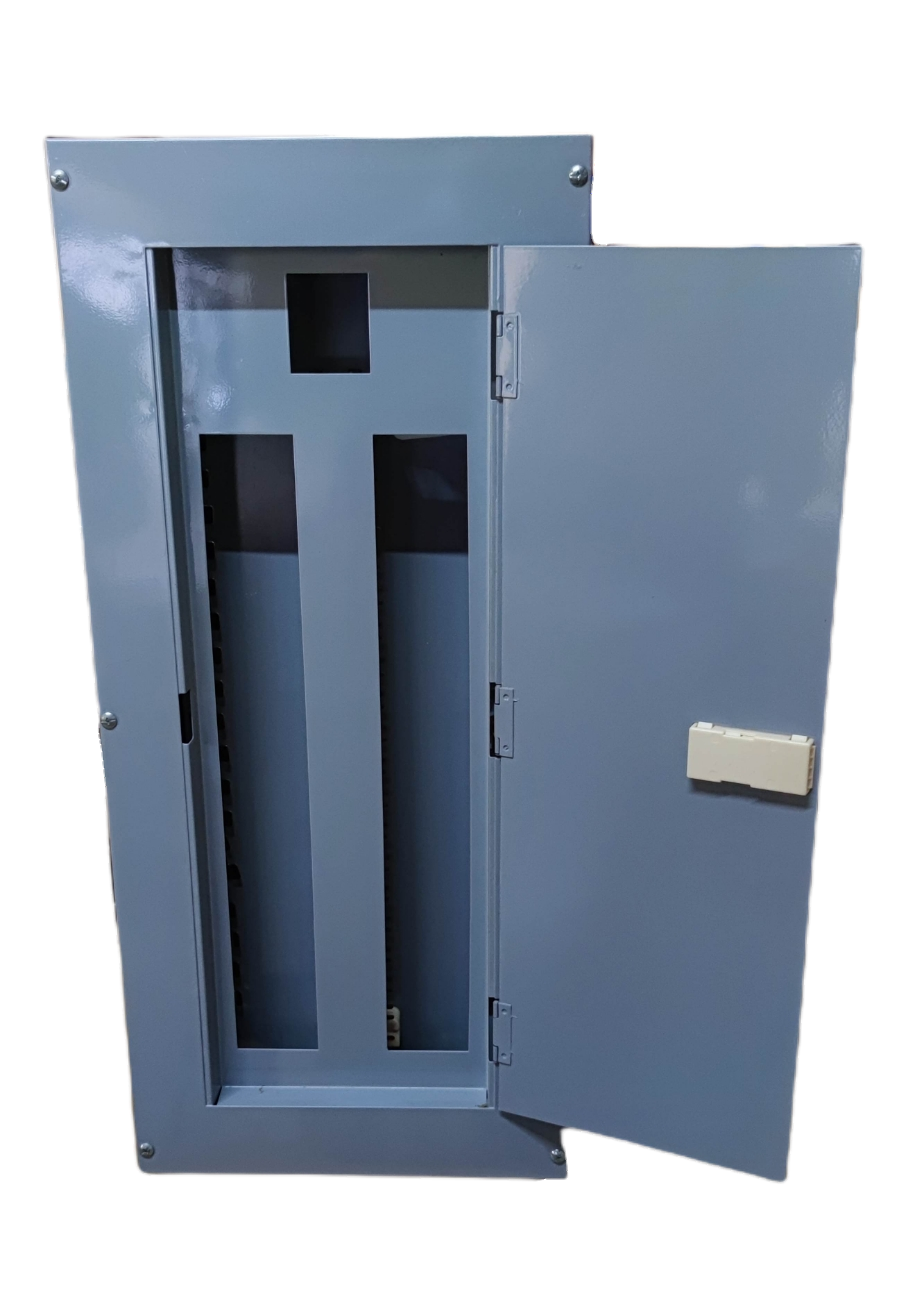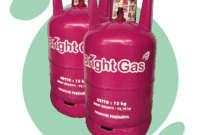Panel Truck Rental: Your Comprehensive Guide to Efficient Transport cars.truckstrend.com
In the dynamic world of moving, logistics, and temporary hauling needs, the panel truck stands out as a versatile and often overlooked hero. Bridging the gap between a standard cargo van and a full-sized box truck, renting a panel truck offers a unique blend of capacity, maneuverability, and cost-effectiveness that makes it an ideal solution for a multitude of tasks. Whether you’re a small business owner making deliveries, an individual tackling a DIY home project, or a student moving into a new apartment, understanding the ins and outs of panel truck rental can save you time, money, and considerable stress.
This comprehensive guide will navigate you through every aspect of panel truck rental, from understanding what these vehicles are to mastering the rental process, ensuring you’re well-equipped for a smooth and successful experience.
Panel Truck Rental: Your Comprehensive Guide to Efficient Transport
What Exactly is a Panel Truck?
Often confused with a cargo van or a small box truck, a panel truck carves its own niche. At its core, a panel truck is a light-duty to medium-duty commercial vehicle characterized by its fully enclosed cargo area, typically without windows in the rear or sides. This design provides maximum security and protection for its contents, shielding them from the elements and potential theft.
Unlike a typical cargo van, which is usually a modified passenger van chassis, panel trucks often feature a more distinct, box-like cargo body that is separate from the cab, though still integrated into a single unit. They are generally smaller than a traditional "box truck" (which often has a separate, square cargo box mounted on a truck chassis) but offer significantly more cubic feet of space than most cargo vans. Access to the cargo area is usually via large rear swing doors or, less commonly, a roll-up door.
Key Characteristics:
- Enclosed Cargo Area: No windows in the cargo bay for security and weather protection.
- Integrated Design: Often built on a heavy-duty van chassis, but with a more spacious, purpose-built cargo area.
- Rear Access: Primarily through large double swing doors, sometimes a roll-up door.
- No CDL Required: Most panel trucks available for rent can be driven with a standard Class D driver’s license.

Why Rent a Panel Truck? The Unbeatable Advantages
The decision to rent a panel truck often comes down to its unique blend of practical benefits. Here’s why it might be the perfect solution for your next hauling challenge:
-
Versatility for Diverse Needs:
- Personal Use: Ideal for small apartment moves, transporting furniture purchases, college moves, hauling large DIY project supplies (lumber, drywall), yard waste disposal, or bringing home bulky appliances.
- Business Use: Perfect for local deliveries, transporting tools and equipment to job sites, moving inventory between warehouses, setting up for trade shows or events, or acting as a temporary fleet expansion during peak seasons.

-
Cost-Effectiveness: For jobs that are too large for a personal vehicle but don’t require the immense capacity (and higher fuel consumption) of a large moving truck, a panel truck offers an economical middle ground. It helps avoid multiple trips in a smaller vehicle and is significantly cheaper than hiring professional movers for minor tasks.
-
Maneuverability and Ease of Driving: Panel trucks are generally easier to navigate through urban streets, tight parking lots, and residential areas compared to larger box trucks. Their smaller footprint makes them less intimidating to drive for those accustomed to sedans or SUVs, yet they still provide ample cargo space.
-
Security and Protection: The fully enclosed cargo area keeps your belongings safe from adverse weather conditions (rain, snow, sun) and provides a secure environment, reducing the risk of theft compared to open-bed trucks or trailers.
-
Accessibility: With a standard driver’s license typically being sufficient, panel trucks are accessible to a broad range of drivers without the need for specialized commercial licenses.

Types of Panel Trucks Available for Rent
While the term "panel truck" broadly refers to enclosed cargo vehicles, rental companies typically categorize them by their cargo capacity or length, which dictates the volume of items they can carry.
- Small Panel Trucks (e.g., 10-12 feet): These are often the most common rental option, resembling an oversized cargo van. They are perfect for studio or small one-bedroom apartment moves, transporting a few large pieces of furniture, or significant hauls from a hardware store.
- Medium Panel Trucks (e.g., 14-16 feet): Offering more space, these are suitable for larger one-bedroom or small two-bedroom apartment moves, or for businesses requiring more cargo volume for deliveries.
- Features to Look For:
- Rear Door Type: Swing doors are common and offer full-width access.
- Tie-Downs: Essential for securing your cargo and preventing shifting during transit.
- Automatic Transmission & AC: Standard in most modern rental fleets for ease of driving and comfort.
- Ramps/Liftgates: Less common on smaller panel trucks but can be found on larger models or small box trucks, making loading heavy items easier. Always confirm availability if needed.
When choosing a size, it’s always better to slightly overestimate your needs than to underestimate and find yourself short on space.
How to Rent a Panel Truck: A Step-by-Step Guide
Renting a panel truck is a straightforward process, but following these steps will ensure a smooth experience:
-
Assess Your Needs:
- What are you moving? List all items.
- How much space do you need? Estimate cubic feet or use online guides to match items to truck sizes.
- What’s the total weight? Don’t overload the truck’s weight capacity.
- What’s the distance? This impacts mileage costs and one-way vs. round-trip decisions.
-
Research Rental Companies:
- Major Players: U-Haul, Penske, Budget Truck Rental, Enterprise Truck Rental, Ryder.
- Local Options: Don’t overlook smaller, independent rental agencies which might offer competitive rates or specialized services.
- Compare: Check reviews, availability, and customer service reputation.
-
Get Detailed Quotes:
- Contact multiple companies.
- Ask about the base daily/weekly rate, mileage fees (per-mile charge after included miles), fuel policy, insurance options, and any environmental or administrative fees.
- Inquire about essential moving equipment like dollies, hand trucks, and furniture pads.
-
Book Your Rental:
- Reserve in Advance: Especially crucial during peak seasons (weekends, end of the month, holidays, summer).
- Provide Information: You’ll typically need a valid driver’s license and a major credit card. Some companies may require a second form of ID.
- Confirm Details: Double-check pickup time, location, truck size, and total estimated cost.
-
Pick Up the Truck:
- Arrive on Time: And bring all required documents.
- Thorough Inspection: Before driving off, meticulously inspect the truck for existing damage (dents, scratches, cracked mirrors, tire condition). Take photos or videos of any pre-existing damage to avoid being held responsible later.
- Check Fluids & Fuel: Ensure the fuel level matches the agreement and confirm the fuel type (gasoline or diesel).
- Familiarize Yourself: Adjust mirrors, locate lights, wipers, and controls. Understand how the cargo doors operate.
-
Drive Safely:
- Remember the Size: Panel trucks are longer, wider, and taller than passenger vehicles. Account for this in turns, braking, and parking.
- Low Clearances: Be mindful of overhead obstacles like low bridges, drive-thru canopies, and parking garage entrances.
- Blind Spots: Utilize side mirrors effectively and be aware of larger blind spots.
- Braking Distance: Allow significantly more braking distance.
-
Return the Truck:
- Fuel Policy: Adhere to the fuel policy (e.g., return with a full tank, or pay for used fuel plus a service charge).
- Cleanliness: Remove all your belongings and any trash.
- On Time: Return the truck by the agreed-upon time to avoid late fees.
- Final Inspection: Walk around the truck with the rental agent if possible, confirming no new damage. Get a final receipt.
Key Considerations Before Renting
To ensure a stress-free experience, keep these vital points in mind:
- Driver’s License: For most standard panel trucks in the U.S. and Canada, a regular Class D (or equivalent) driver’s license is sufficient. No special commercial license is typically needed.
- Insurance: Your personal auto insurance policy might offer some coverage, but it’s often limited for rental trucks. Rental companies offer supplemental coverage options like:
- Collision Damage Waiver (CDW): Waives your financial responsibility for damage to the rental truck.
- Supplemental Liability Insurance (SLI): Provides additional liability coverage for damages or injuries to third parties.
- Personal Accident Insurance (PAI): Covers medical expenses for you and your passengers.
- Personal Property Coverage (PPC): Covers your belongings in the truck.
- Recommendation: While optional, opting for at least a CDW and SLI is highly recommended for peace of mind.
- Fuel Policy: Clarify whether you need to return the truck with a full tank or if you’ll be charged for the fuel used at the rental company’s rate (which can be higher than pump prices).
- Mileage Fees: Most rentals include a certain number of miles per day (e.g., 50-100 miles). Beyond that, a per-mile charge applies. Factor this into your total cost, especially for longer trips.
- Age Restrictions: Most rental companies require drivers to be at least 21 years old. Some may have higher age requirements (e.g., 25) for certain vehicles or offer rentals to younger drivers with an additional surcharge.
- One-Way vs. Round-Trip: One-way rentals (picking up in one city and dropping off in another) are convenient for long-distance moves but are typically more expensive than round-trip rentals.
- Additional Equipment: Dollies, hand trucks, furniture pads, and tie-down straps can significantly ease your moving burden. Inquire about their rental cost when booking.
Tips for a Smooth Panel Truck Rental Experience
- Book Early: Especially during peak seasons or for specific truck sizes.
- Read the Fine Print: Understand the terms and conditions, especially regarding fuel, mileage, and insurance.
- Take Photos: Document the truck’s condition (inside and out) before and after your rental.
- Load Smart: Place heavy items on the bottom and evenly distributed over the axles. Secure everything with tie-downs.
- Plan Your Route: Avoid low bridges, narrow streets, and areas with tight turns. Use a GPS that can account for truck dimensions if possible.
- Keep Receipts: For fuel and the final rental agreement.
- Communicate: If you anticipate being late for pick-up or drop-off, or encounter any issues, notify the rental company immediately.
Potential Challenges and Solutions
- Unexpected Costs: Solution: Get a detailed, written quote that breaks down all potential fees (mileage, insurance, environmental, etc.) before confirming your reservation.
- Availability Issues: Solution: Book well in advance. Be flexible with your pick-up time or even the day if possible. Consider slightly different sizes if your preferred one isn’t available.
- Driving Difficulty: Solution: If you’re new to driving a larger vehicle, take a few minutes to practice in an empty parking lot. Get a feel for its turning radius, braking, and mirror usage.
- Damage/Accidents: Solution: Invest in comprehensive insurance. Drive defensively. In case of an incident, contact the rental company and local authorities immediately.
- Fuel Type Confusion: Solution: Most rental panel trucks run on regular gasoline. However, always double-check the fuel cap or ask the rental agent at pick-up to confirm. Putting the wrong fuel type can cause severe engine damage.
Panel Truck Rental: Estimated Price Table
Please note that these prices are approximate and can vary significantly based on location, rental company, time of year, demand, and specific promotions. Always obtain a detailed quote directly from the rental provider.
| Truck Size (Approx.) | Daily Rate (Base) | Weekly Rate (Base) | Included Mileage/Day | Excess Mileage Fee | Basic CDW (Optional) | Supplemental Liability (Optional) | Hand Truck Rental | Moving Blanket Pack (12) |
|---|---|---|---|---|---|---|---|---|
| 10 ft Panel Truck | $29.99 – $39.99 | $179 – $239 | 50 miles | $0.59 – $0.79/mile | $15 – $25/day | $10 – $20/day | $7 – $10/day | $15 – $20/pack |
| 12 ft Panel Truck | $34.99 – $44.99 | $209 – $269 | 75 miles | $0.59 – $0.79/mile | $18 – $28/day | $12 – $22/day | $7 – $10/day | $15 – $20/pack |
| 14 ft Panel Truck | $39.99 – $49.99 | $239 – $299 | 100 miles | $0.59 – $0.79/mile | $20 – $30/day | $15 – $25/day | $7 – $10/day | $15 – $20/pack |
Note: Taxes, environmental fees, and peak season surcharges are not included in these base rates and will add to the final cost.
Frequently Asked Questions (FAQ) About Panel Truck Rental
Q1: Do I need a special license to drive a panel truck?
A1: For most standard panel trucks available for rent (typically under 26,000 lbs GVWR), a regular Class D (or equivalent) driver’s license is sufficient. A Commercial Driver’s License (CDL) is generally not required.
Q2: How old do I have to be to rent a panel truck?
A2: Most rental companies require drivers to be at least 21 years old. Some may have an age requirement of 25 for certain vehicles or charge a "young driver" surcharge for renters between 21-24.
Q3: What kind of fuel do panel trucks use?
A3: The majority of rental panel trucks run on regular unleaded gasoline. However, always double-check the fuel cap or ask the rental agent at pick-up to confirm the correct fuel type for your specific truck.
Q4: Is insurance necessary when renting a panel truck?
A4: While not always legally mandatory, purchasing supplemental insurance from the rental company (like a Collision Damage Waiver and Supplemental Liability Insurance) is highly recommended. Your personal auto insurance may not fully cover rental trucks, and this coverage can protect you from significant financial liability in case of damage or an accident.
Q5: Can I rent a panel truck for one-way trips?
A5: Yes, most major rental companies offer one-way rentals, allowing you to pick up a truck in one location and drop it off in another. However, one-way rentals are typically more expensive than round-trip rentals due to logistics.
Q6: What should I do if the rental truck breaks down?
A6: Immediately contact the rental company’s roadside assistance number, which should be provided at pick-up. Do not attempt to fix the problem yourself. They will guide you on the next steps, which may include dispatching a mechanic or arranging a replacement vehicle.
Q7: How much mileage is usually included with a panel truck rental?
A7: The included mileage varies by company and rental period. Daily rentals often include 50-100 miles, with a per-mile charge for any miles exceeding that allowance. For longer trips, consider companies that offer unlimited mileage or higher allowances if available, though these often come with higher base rates.
Q8: Are panel trucks hard to drive?
A8: While larger than a typical car, panel trucks are generally manageable. They require more awareness of their dimensions (height, width, length), wider turns, and longer braking distances. Take your time, use your mirrors frequently, and avoid distractions. A brief practice run in an empty lot can boost your confidence.
Conclusion
Panel truck rental offers an incredibly practical and efficient solution for a wide array of transport needs, from personal moves to critical business logistics. By understanding the nuances of these versatile vehicles, diligently planning your rental, and being aware of key considerations like insurance and mileage, you can transform a potentially daunting task into a smooth, cost-effective, and empowering experience.
With the right preparation and knowledge, a panel truck rental isn’t just about moving goods; it’s about moving forward with confidence, tackling challenges, and achieving your goals with ease.




